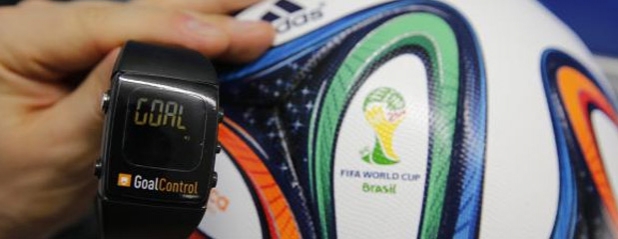Brazil 2014 – the technology behind the ‘digital world cup’

The World Cup championships have come a long way since they began in 1930, not only in how the sport has adapted but how the use of technology in the game has also adapted.
There have been two memorable incidents involving the England team where technology could have changed their chances in the game, the 1966 World Cup Final and the disallowed goal by Frank Lampard against Germany in 2010. If technology had been involved here it could have allowed England to win the game.
As we are getting closer to the 2014 games in Rio de Janeiro Brazil, it seems that the main focus is technology after being named the first ‘digital World Cup’. This year’s stadium has been kitted out with 14 cameras, 7 per goal, which are connected to a watch attached to the referees’ wrist which will vibrate and display ‘GOAL’ when the ball passes the goal line. Imagine all the commotion this could have saved in 2010!
Not only is technology closely involved within the game itself, but the buzz surrounding the games is all created by technology- viewing the games, sharing opinions, voting and betting will all be done via digital devices. The world cup stadium has also been fitted with 224 HD cameras to capture all 2,500+ hours of football activity which will be viewed by more than four billion people across the globe.
Technology companies have had to prepare for an extremely high volume of traffic from people watching the games and sharing moments on social media. Mobile and online betting is likely to reach record levels as almost a third of UK adults plan on placing a bet for the 2014 World Cup. Brazilian telecoms companies have also been preparing for this tournament by expanding the Wi-Fi network and creating almost 600,000 new hot spots. The technology companies working with the games have said they couldn’t do what they do without cloud computing.
The World Cup is also set to be a “social World Cup” with social media such an active part of everyday life. Expect sharing of the action, comments, predictions and frustrations for the whole of the tournament.
